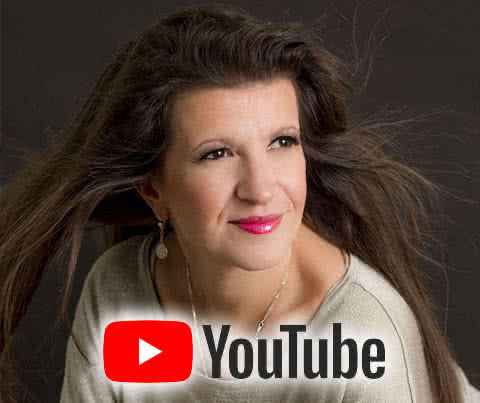Diction course
Nowadays, people tend to conceive diction for what it is not.
Diction firstly defines intention, which is the right or wrong way to read, act or sing something. Secondly, it also defines the choice of which words and in what order to arrange them to achieve a certain result in the listener. Only recently has also taken the meaning of "pronunciation", but you should not consider diction as a synonym of
Pronunciation or Phonation.
The diction always has to do with communicating emotions to others, which is certainly possible even in the presence of vocal defects, dialectal or foreign accents, then with a pronunciation far from perfect.
The difference between diction, phonation and pronunciation
We might pay attention to the subtle difference between a vocabulary and a dictionary. Both report the written form, so implications related to the pronunciation of words are to be excluded, although the more modern ones report the use of the phonetic alphabet. The vocabulary is a collection of words with their meanings, while the dictionary is a collection of words with their meanings and some sayings or famous phrases that show their use.
Once this concept is understood, it will be obvious to everyone that clarity of pronunciation is still essential. In fact, in order to express one's emotion to others, it is necessary to give the right energy and intention to the words, without distorting their comprehensibility. Looking at it as a whole, to be clear it is not enough to pronounce correctly every single word of a speech, but it is necessary to experience and manage also all the single pause moments that exist.
Exercises and diction lessons: the mistakes to avoid
An error in phonation or enunciation is always linked to a bad muscular coordination of the various parts involved: there is a big difference between pronouncing a word clearly and thinking you have done it!
In reality, all phonation and diction are the work of unconscious, automatic processes, outside the conscious control of our brain. In order for a person to regain possession of them, it is necessary to undergo a clear training path, which is completely ignored by the majority of professionals who deal with vocality.
For example, the tongue plays the major role in the articulation of words, and almost all modern poor teaching tends to limit its mobility in truly absurd positions. It is obvious to anyone that limiting the mobility of the tongue will only produce people who speak or sing with really unclear and unintelligible pronunciations.
Leave out what's important to devote to the irrelevant
In the old idea of schooling, not just vocal training, there was an emphasis and great importance on fundamentals. The older among you will remember the countless pages repeated ad nauseam, full of sticks and circles. This was the first step in training our bodies to master the pencil instrument, so that we would be prepared to learn to write. Our handwriting grew with us instinctively and expressed our personality, just as our voice did, even without any apparent teaching.
It is said that the greatest voices of the past spent years defining the clarity of the vowels in the pronunciation of each syllable: because it is really essential that the message you want to convey is clear, otherwise the person listening is forced to try to understand it, losing the thread of the entire speech!
The Western mindset is inclined to think that everything can be achieved with little tricks or shortcuts. No one evaluates that the greatest things in their lives were actually achieved through years of hard work and constant mistakes. Think about your first steps. No one told you to "get up and walk." You started strengthening your leg muscles (for months!), then you started developing a sense of balance (more long months!) and only after a considerable time did you try to take your first step. And you surely fell down, moreover hurting yourself! If each of us had looked for tricks or shortcuts, today no one would walk!
Training to speak fluently: the Inborn Voice method
Those who prioritize the choice of words to use, the pauses to enact, and the pronunciation, are actually not improving their communication skills at all; they are only complicating them. For communication to be effective, to get the message across, it must be simple. An Inborn Voice training will help you free your voice from all those vices, attitudes, and habits that prevent your natural expressiveness. You will return to loving your voice, adoring its sound, and you will feel like speaking, intervening, presenting, and opposing other ideas. Our method is groundbreaking, different from others and that's why it has achieved so much success. If your goal is to communicate your essence, your ideas, your thoughts and your value to others, then the Inborn Voice method is for you. Book your first voice assessment session below and you will also receive valuable feedback from Mylena Vocal Coach on your current diction.







